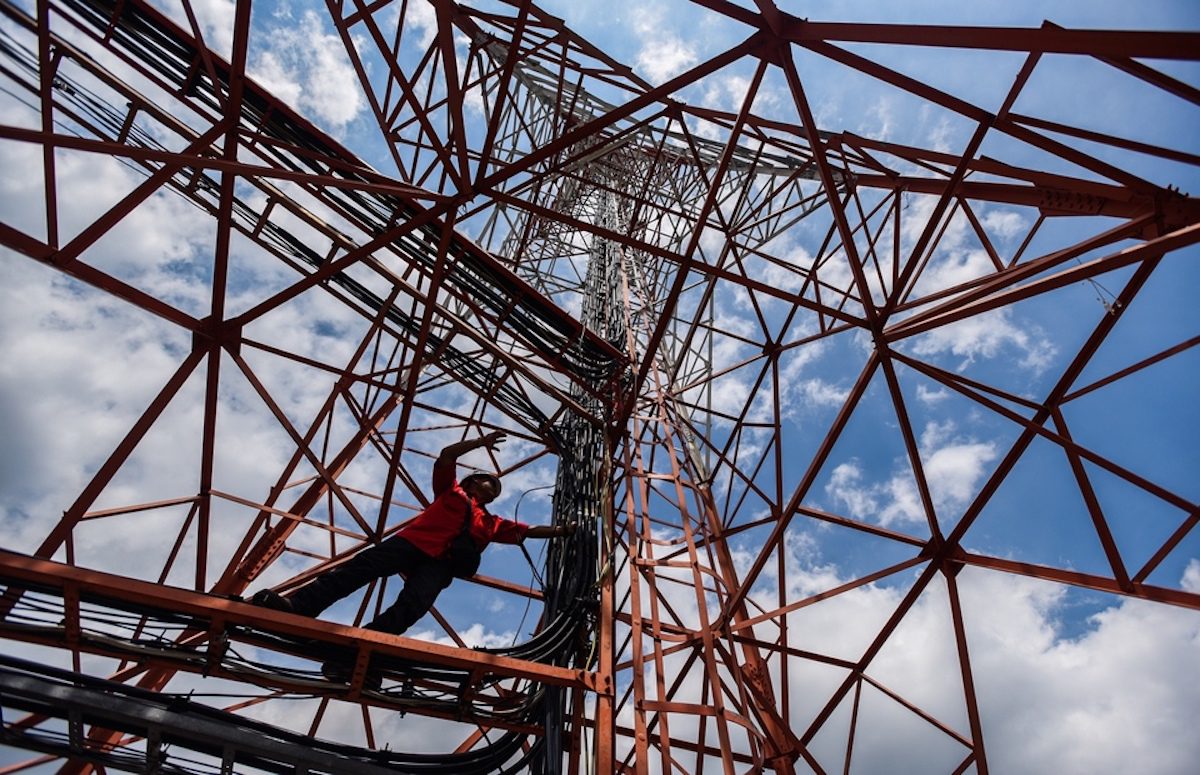Global Courant 2023-05-23 10:30:20
JAKARTA – Valid or not, it is proving difficult for President Joko Widodo to refute claims that there was a political motive behind last week’s arrest of National Democratic Party-affiliated (Nasdem) Secretary of Communications and Information Technology, Johnny Plate, on charges of corruption.
Although a cloud had hung over him for months, the president must have finally come to sue Plate for allegedly damaging the state of 8 trillion rupiah (US$536 million) in the installation of telecom base transceiver stations (BTS) in corners of the vast archipelago.
Nasdem has three ministers in the current cabinet, but party leader Surya Paloh sparked tensions within the government – and sparked rumors of an imminent reshuffle – after he declared his support for the opposition presidential candidate Anies Baswedan last October.
While there had been some friction between the two, Paloh’s move to switch sides clearly surprised Widodo, as the bearded media baron was the first senior political figure to endorse him when he ran for president in 2014 and again in 2019.
With the Justice and Welfare (PKS) and Democrats (DP) parties already backing Baswedan, Nasdem’s support enabled the former governor of Jakarta to pass the 20% threshold of parliamentary seats needed to be nominated for what threatens to become a triptych. road race.
Jakarta’s political elite are wary of Baswedan because of his ties to Islamic conservatives and because of the belief that he could receive substantial votes from the 56% of the electorate who are under 40 and hold different political views.
While his chances seem slim at the moment, his election would also mean a changing of the guard among the powerful, politically connected businessmen who surround the current administration.
Anies Baswedan (3rd-L) and Ulema greet people at Monas Square at a reunion meeting held by 212 Rally Alumni in Jakarta, Indonesia on December 2, 2018. Photo: Anton Raharjo / Anadolu Agency
Paloh acknowledged in a recent interview that there have been persistent attempts by intermediaries to get him to change his mind. If he did, and he shows no signs of pandering, it would leave the race without a true opposition candidate.
There have also been several investigations by the Anti-Corruption Commission (KPK) and the police who wanted to implicate Baswedan himself in a corruption case related to the Formula E race held in Jakarta in mid-2022, but they have apparently been unable to find any evidence .
Widodo has yet to clarify who he will support for the presidency: ruling Indonesian Democratic Party for Struggle (PDI-P) candidate Ganjar Pranowo or Defense Minister and Great Indonesian Movement leader (Gerindra) Prabowo Subianto.
Paloh has insisted that he will continue to support government policies for the remainder of Widodo’s term in office, and so far Widodo has resisted pressure to remove Plate and the two other Nasdem cabinet members, Agriculture Minister Syahrul Yasin Limpo and Environment and Security Minister Forestry Siti Nurbaya Bakar, to remove.
But Attorney General Sanitiar Burhanuddin’s action in arresting Plate, 66, Nasdem’s concurrent secretary general, could provide him with the excuse to finally press ahead with the long-rumored shake-up. The minister was relieved of his duties on May 17, the day he was detained.
Burhanuddin, a career prosecutor, claims political independence, but his older brother is senior PDI-P politician Tubagus Hasanuddin, a retired two-star general and former military secretary to party leader and then-President Megawati Sukarnoputri.
Earlier this month, the president failed to invite Paloh to a meeting of chairmen of six political parties that are part of the ruling coalition, suggesting a reshuffle is imminent. “This is about the affairs of the coalition,” he told reporters. “Do they (Nasdem) need to know what strategy we are planning.”
Four of Widodo’s ministers have already been jailed for corruption during his nine-year tenure, including Sports Minister Imam Nahrawi (National Awakening Party), Fisheries Minister Edhy Prabowo (Gerindra), and Social Affairs Ministers Idrus Marham (Golkar) and Juliari Batubara ( PDI-P).
The latest scandal may be the worst case of high-level corruption since 2017, when Golkar Party chairman and Speaker of the House of Representatives Setya Novanto was jailed for 15 years for embezzling $172 million from a program for electronic identity cards.
Johnny Plate is accused of corruption. Image: Twitter/Screengrab
Plate and five other defendants are charged with coughing up the cost of studies for the national rollout of new 4G towers, raising the price of equipment and spending money earmarked for stations that have either not been built or are not functioning.
Plate’s younger brother, Gregorius Alex Plate, is also under investigation as an alleged intermediary between subcontractors and the ministry in the construction of 7,904 towers in Sumatra, Kalimantan, Maluku, Sulawesi and East Nusa Tenggara between 2020 and 2022.
Indonesia has reached an impressive 95% mobile phone availability, with coverage from state-owned Telkomsel, the largest and only provider operating in all 38 provinces, the newly merged Indosat Ooredoo-Hutchinson, XL Axiata and Smartfren.
Unlike towers in densely populated areas, funding for remote stations comes from the Universal Service Obligation (USO), a long-recognized consumer protection mechanism that, in the case of Indonesia, imposes a 1.75% tax on the gross profit of all telecom companies.
Without it, individual carriers would find it commercially unviable to expand their networks into areas where they would never recoup the $100,000-$150,000 cost of building a single BTS.
Telkom Indonesia, the majority shareholder of Telkomsel, operates approximately 138,000 stations across Indonesia, a huge increase from 1,575 in 2014. The mobile phone subsidiary posted revenues of $5.8 billion in 2021, while the parent company posted a net profit of $5.8 billion in 2021. $1.8 billion reported.
The Ministry of Communications and Informatics budgets 9.5 trillion rupiah from the USO for the BTS program in 2020, with 4,200 towers planned for 2021 and 3,700 more in 2022. According to the ministry’s website, about 1,900 sites are currently in operation.
“The USO is a big pot of money,” says a telecom manager. “What makes it blatant is that it is aimed at underprivileged people. We are never allowed to ask, and we are never told, where the money is going. As far as we know, there is not even an audit.”
That all changed when the Attorney General began his investigation and brought in the BPKP, the state’s auditing agency, to check the numbers.
Similar:
Loading…








